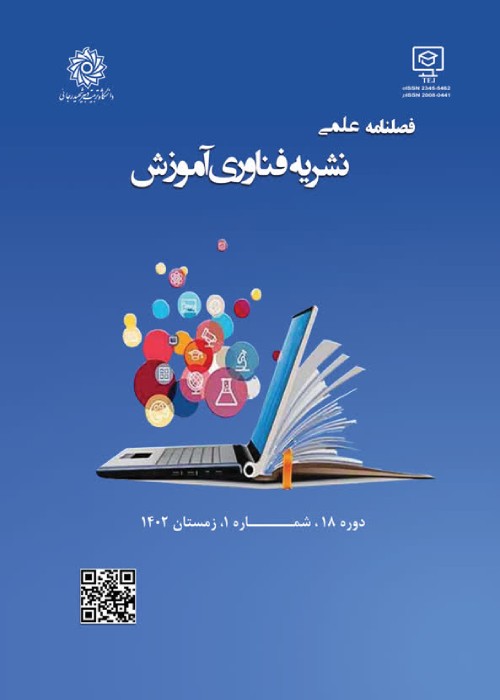Identification of strengths, defects, opportunities and threats in MOOC-based curricula in Iran’s higher education system
Although the fields of teaching and learning have changed very little compared to other categories more than two thousand years ago, today, with the help of information technology, it has undergone rapid changes. In recent years, virtual education has emerged as one of the most important applications of new information and communication technologies in the world and extensive activities have begun in this direction. Virtual education has created a new paradigm and has enabled learning in any field, for any person, at any time and in any place. Among the various forms of e-learning, there has been a significant expansion of free online courses, MOOCs in recent years. The purpose of this study is to delineate the strengths, defects, opportunities and threats in MOOC-based curricula. This research is applied and used a qualitative method.
The statistical population of the qualitative section includes experts who have been engaged in the process of providing educational services during MOOC-based educational courses. From among this population, 14 individuals have been chosen as the statistical sample through purposive sampling. The data have been gathered through semi-structured interviews.
The findings show that the most significant strengths include: promotion of access to curricula, learner-orientation, the possibility of realization in learning society, enjoying high quality teaching and promotion of dynamism. Among the most important defects are the possibility of neglecting real situations in education, the possibility of lack of proper educational organization, the possibility of an increase in the financial burden of the curriculum, the possibility of exclusivity in curriculum development, the possibility of not being able to evaluate high order thinking skills, the possibility of taking teacher freedom away, the possibility of lack of organization in evaluation, the possibility of arising problems in precise verification of the evaluated person. The most significant opportunities are supporting the extension of educational justice, the possibility of investment, supporting up-to-date knowledge, extending international communication in higher education curriculum development, the possibility of revising university curricula, facilitating the promotion of evaluation methods efficiency and making the education more applicatory. The most prominent threats are disruption in university functions, making instructors’ professions questionable, lack of educational purposiveness, incompetency of curriculum objectives, opposition of values and superficiality of curriculum objectives, instrumental exploitation of MOOCs, incompatibility between content and the audience’s needs, evaluations becoming quantitative, disregarding the market requirements in the process of evaluation and doubtfulness and pessimism towards MOOCs.
Based on the results of the present study, considering the contextual conditions and planning in the field of strengthening and its optimal preparation, as conditions affecting all the components and factors involved in the design of MOOCs in higher education; universities and higher education institutions should invest in the development of a culture that seeks to discover, invent, innovate, and create curricula based on MOOCs in order to establish a knowledge-based structure; expand the scope of MOOC-based curricula in academic settings through teamwork question and answer sessions between students and faculty, group discussions, and the formation of workshops and seminars in collaboration with other institutions and higher education centers.
MOOCs , Opportunities , Threats , Strengths , Defects
- حق عضویت دریافتی صرف حمایت از نشریات عضو و نگهداری، تکمیل و توسعه مگیران میشود.
- پرداخت حق اشتراک و دانلود مقالات اجازه بازنشر آن در سایر رسانههای چاپی و دیجیتال را به کاربر نمیدهد.


